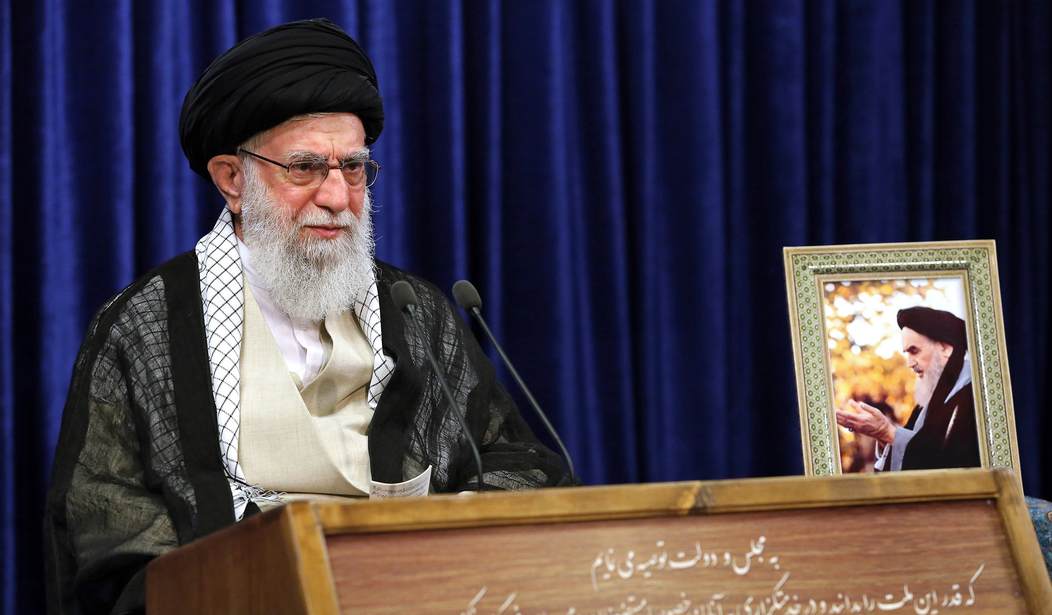The death of Hamas’s leader Ismail Haniyeh has put Iran in a bad position. Haniyeh was one of Iran's most important proxies and allies and to have him killed so publicly in Tehran was one of the great embarrassments in the history of the Islamic Republic.
As expected, Iran is plotting its revenge. But as a signal that Tehran does not want an all-out war with Israel, the Iranians let it be known that the attack was coming.
Although Israel has said nothing about Haniyeh's death, neither confirming nor denying responsibility (which is its custom), Iran and Hamas are proceeding from that assumption and whatever shape their retaliation takes, it will be designed not to provoke Jerusalem into fighting a wider war.
After Iran's massive attacks on Israel in response to Israel's strike on Iran's embassy in Damascus that killed several high-ranking officers last April, Israel's counter-response was muted largely because Iran telegraphed the attack just as they're doing now.
No doubt Joe Biden and American diplomats in the region are urging Israeli Prime Minister Benjamin Netanyahu to act in a similarly restrained manner after the coming Iranian barrage.
Despite the choreographed attack/response/attack/response, miscalculation is still a possibility. A wayward Iranian missile might hit a target that would kill dozens of civilians. An Israeli bomb could likewise accidentally hit a civilian target in Iran causing unfortunate casualties. These circumstances could very well lead to an escalation that might get out of control.
Even more worrying, U.S. Secretary of State Antony Blinken said the U.S. had no advance knowledge of Israel's assassination operations. This confirms that there's a dangerous power vacuum in the Middle East due to America under Biden being disengaged.
“We thought it would be Vladimir Putin or Xi Jinping or Kim Jong-un who would take advantage of this period in the U.S.,” said Vali R. Nasr, a professor of international affairs at the Johns Hopkins School of Advanced International Studies. “Nobody counted on an American ally doing it.”
“This is going to make the region extremely nervous,” said Nasr, who served in the State Department under President Obama. “It’s never good for the United States to be seen as not in control.”
Biden has ceded that control. And the chances of war are increasing because of it.
For President Biden, who expended time and prestige trying to broker a deal between Israel and Hamas to release hostages in Gaza, the back-to-back assassinations of the Hezbollah commander, Fuad Shukr, and the Hamas political leader, Ismail Haniyeh, could signal the futility of his diplomatic efforts, at least for now.
Moreover, the United States could find itself drawn into a direct conflict with Iran, something both countries have taken pains to avoid through months of tensions over the war in Gaza. In April, American officials worked behind the scenes to persuade Iran to limit its military reprisal against Israel after Israeli jets carried out a deadly strike on a meeting of Iranian generals in Damascus, Syria.
Biden's foreign policy record has been dominated by "futility." Afghanistan, Africa, South America, Central America, and a patchy record in Europe have made Biden's term in office among the worst in recent presidencies regarding foreign affairs.
The loss of American influence in the Middle East would normally worry allies in Europe. But they have their own problems. In France and Germany, leaders are preoccupied by surging right-wing populist parties. In London, a new Labour prime minister, Keir Starmer, has edged away from the United States in its handling of Israel, after months in which London had been in lock step with Washington.
American enemies and allies will have to recalculate America's impact on their own policies. The U.S. is less committed to our allies in Israel and Western Europe, and that's not likely to change if Donald Trump wins in November.
The next decade will be a perilous one for the United States with a rising power in the East and a more aggressive power in Russia. And minor players like Iran and Turkey will play a larger role in regional conflicts.
Biden will bequeath a weaker America to whoever follows him










